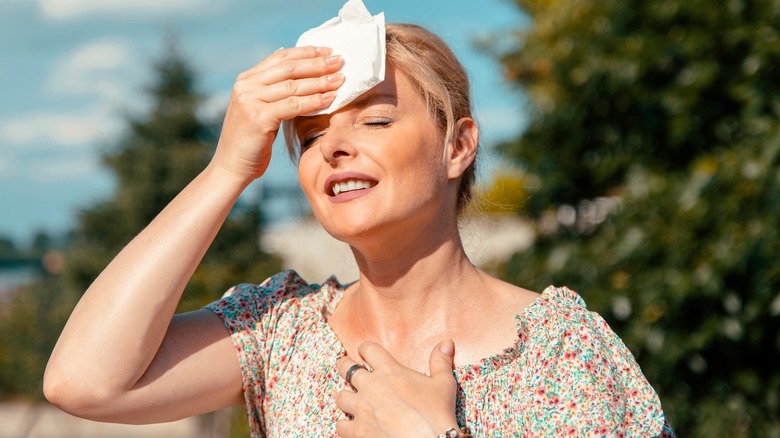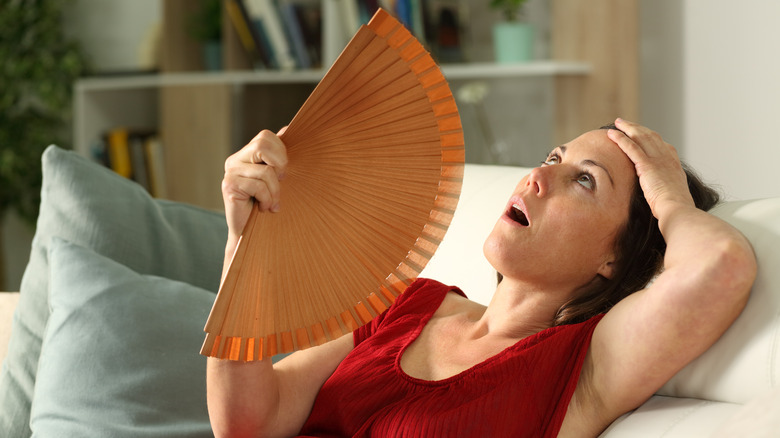What Does It Feel Like When You Have A Hot Flash?
Hot flashes are the subject of many conversations among women in their forties and fifties. Though women have likely heard about them from older women in the family, there is still an air of mystery surrounding these sudden bursts of heat.
Hot flashes are a symptom of both perimenopause and menopause (via Johns Hopkins Medicine). Perimenopause is the time when your body is transitioning to menopause, and estrogen decreases which causes progesterone to become unbalanced and symptoms begin, per Cleveland Clinic. During perimenopause, you may first start noticing symptoms such as hot flashes, insomnia, irritability, and irregular periods including heavier or lighter flow.
Menopause is when periods have officially stopped for at least twelve consecutive months, and hot flashes may increase when menopause is reached. Since perimenopause can occur up to ten years before menopause, it's not uncommon for women in their late thirties and early forties to experience hot flashes — and there are some ways to identify hot flashes that all women should know about.
What happens during a hot flash
According to Harvard Medical School, hot flashes are the most commonly reported symptom of perimenopause. They are medically known as vasomotor symptoms but are sometimes also referred to as hot flushes.
"Hot flashes are a result of an exaggerated but temporary hormonal response of our body's thermoregulator in our brain — the hypothalamus — that leads to a paradoxical dilation of the blood vessels in our skin, thus causing a rush of blood to the surface of our skin," Dr. Cindy M.P. Duke, fertility expert and virologist, explained to Glamour. "This in turn leads to us feeling suddenly warm and flushed."
They often come by surprise and feel different for each woman who has them. Characterized by a feeling of intense heat overtaking the body, they seem to come out of nowhere.
How hot flashes feel
When you have a hot flash, one minute you feel quite normal yet the next moment you experience an overwhelming sensation of heat in the upper body. "Many women describe a hot flash as a sudden onset of heat that is felt internally, especially in the chest, neck, and face," says board-certified ob-gyn Dr. Kiarra King (via Glamour). King adds: "Some women will have associated perspiration, flushing, or heart palpitations."
Hot flashes can also produce extreme sweating and leave you feeling like you've been doused in sweat. Yet others may only notice a subtle feeling of sudden warmness. In addition, though the term hot flash suggests heat, you may also experience body chills as well as bouts of brief anxiety (via National Library of Medicine). Anytime you experience new symptoms, including hot flashes or changes in your period, it's a good idea to reach out to your gynecologist to discuss what's happening.


